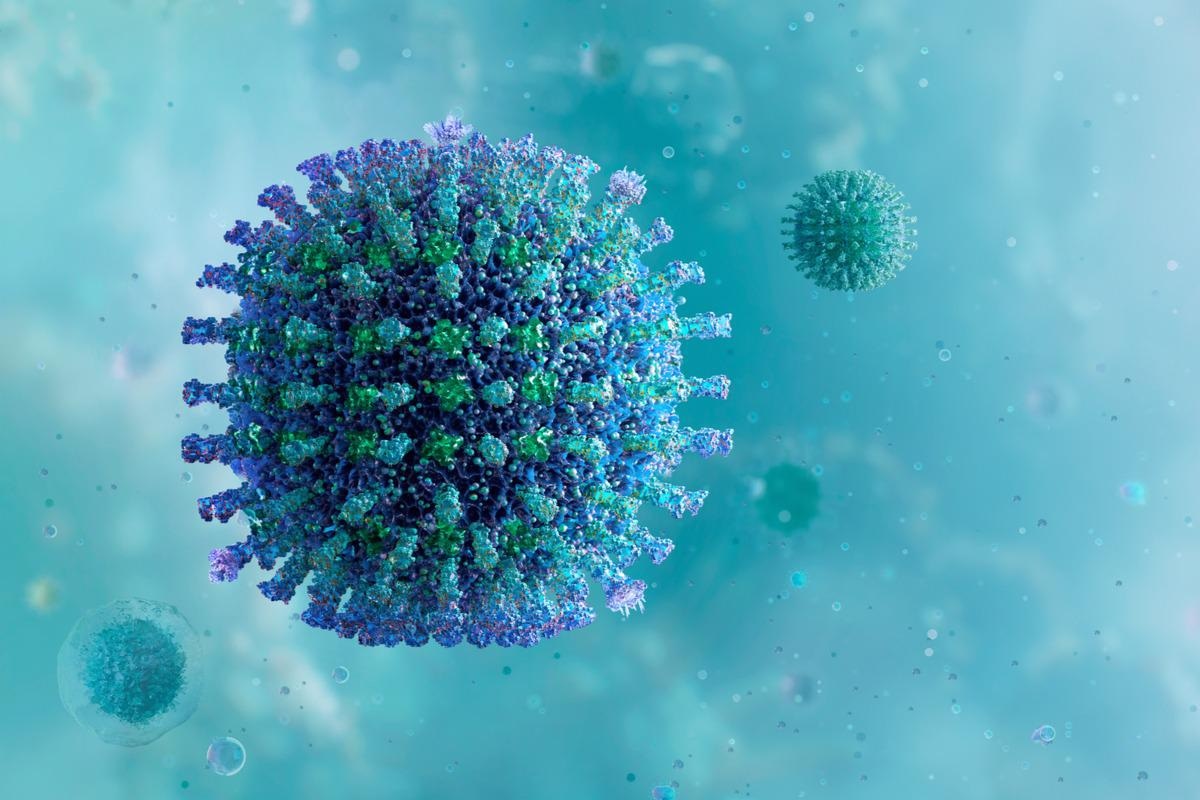In a recent study published in Reviews in Medical Virology, researchers reviewed the antibody resistance exhibited by severe acute respiratory syndrome coronavirus-2 (SARS-CoV-2) variants.
 Study: Development of antibody resistance in emerging mutant strains of SARS CoV-2: Impediment for COVID-19 vaccines. Image Credit: Corona Borealis Studio/Shutterstock
Study: Development of antibody resistance in emerging mutant strains of SARS CoV-2: Impediment for COVID-19 vaccines. Image Credit: Corona Borealis Studio/Shutterstock
Background
SARS-CoV-2, the etiologic agent of the coronavirus disease 2019 (COVID-19) pandemic, is a beta coronavirus (CoV) from the Coronaviridae family. The Orthocoronavirinae sub-family has four genera of CoVs: alpha-CoV, beta-CoV, gamma-CoV, and delta-CoV. Alpha and beta-CoVs infect pigs, mice, cats, bats, and humans, whereas the gamma- and delta-CoVs infect mammals and birds. So far, more than 500 million global cases of COVID-19 have been recorded, with over six million deaths.
Researchers discussed the emergence and genome of SARS-CoV-2 variants of concern in the present study. The efficacy of available COVID-19 vaccines was also reviewed to highlight the need for amending vaccines and developing novel vaccination strategies.
Structural features of CoVs
Human CoVs are positive-sense, single-stranded ribonucleic acid (RNA) viruses with a genome size ranging from 27 to 32 kilobases (kb). Approximately two-thirds of the SARS-CoV-2 genome is conserved, starting with the two large open reading frames (ORFs) 1a and 1b at the 5’ terminus. The remaining part (1/3) part of the genome encodes four structural proteins: spike (S), membrane (M), envelop (E), and nucleocapsid (N) proteins. Different CoVs encode accessory proteins that are not essential for viral replication but affect their pathogenicity. Six SARS-CoV-2 ORFs located between structural genes might encode accessory proteins. SARS-CoV and Middle East Respiratory Syndrome (MERS)-CoV genomes encode eight and five accessory proteins, respectively.
The S protein of SARS-CoV-2, a therapeutic target, binds to the host cells for entry. But the protein needs to be primed by the host transmembrane protease serine 2 (TMPRSS2) for successful entry. The host angiotensin-converting enzyme-2 (ACE2) is the receptor for both SARS-CoV-2 and SARS-CoV, whereas, for MERS-CoV, the dipeptidyl peptidase 4 (DPP4) acts as the host receptor.
SARS-CoV-2 genomic mutations
CoVs acquire mutations during transmission and replication in the host cells with approximately one nucleotide substitution every 11 days. Since the initial outbreak in Wuhan, more than 12,000 mutations have been noted in the reference sequence (hCoV‐19/Wuhan/WIV04/2019). SARS-CoV-2 genomic sequences are stored in the Global Initiative on Sharing Avian Influenza Data (GISAID) database and organized into haplotype groups. Specific SARS-CoV-2 mutations trigger divergent phenotypic changes enhancing viral adaptation to hosts.
The novel Delta (B.1.617) variant has eight mutations in the S protein’s receptor-binding domain (RBD). The amino acid (AA) substitutions such as L452R and E484Q facilitate RBD binding to ACE2 implicated to modulate neutralization by antibodies. SARS-CoV-2 Omicron (B.1.1.529/BA.1) is the latest variant of concern (VOC) with many modifications, predominantly in the coding region. Over 30 AA substitutions exist in the RBD of the Omicron variant. Several AA changes such as K417N, T478K, N501Y, and D614G were implicated in amplifying the risk of reinfection and facilitating vaccine resistance. The S protein is also the target of T-cell neutralizing antibodies during viral clearance. The infection rate of Omicron VOC was reportedly four times that of the ancestral virus and twice the Delta variant.
COVID-19 vaccines and the impact of SARS-CoV-2 variants
Several vaccines have been approved for immunizing the eligible populations against SARS-CoV-2. Pfizer and BioNTech’s BNT162b2 or Comirnaty vaccine is a messenger RNA (mRNA)-based vaccine encoding the full-length S gene. The vaccine is administered in two doses with 30 μg/dose. Spikevax or mRNA-1273 is another mRNA-based vaccine developed by Moderna given in two doses with 100 μg/dose. Spikevax also encodes the full-length S gene with two proline substitutions (S-2P). Besides, adenovirus-vectored vaccines like ChAdOx1, Sputnik V, and Ad26.COV2.S is used in various countries.
The S protein, 1273 AA long and the target of several vaccines, is significantly mutated in several emergent SARS-CoV-2 variants. As such, vaccine-elicited antibodies may not effectively neutralize mutant variants. For instance, eight weeks post-BNT162b2 or mRNA-1273 vaccination, significantly higher levels of immunoglobulin G (IgG) and IgM were detected, but 14 out of the 17 detected antibodies were inefficient to neutralize variants harboring K417N or E484K, and N501Y substitutions. A lower clinical efficacy was reported against the Beta (B.1.351) variant following two ChAdOx1 vaccines. The neutralizing antibodies failed to protect against Beta variant infection, and the T cell responses too could not protect from severe disease. Several recent studies have reported a significant loss of efficacy against different SARS-CoV-2 variants.
Conclusions
The continual emergence of SARS-CoV-2 variants indicates that the COVID-19 pandemic is transforming into a SARS-like epidemic. It is also possible and predictable that newer variants will continue to emerge in the future, and the current vaccines might not provide adequate immunity against novel variants. Nonetheless, evidence suggests that booster doses amplify immune responses, meaning additional doses might protect against emerging mutants. However, it is equally essential to optimally design and develop next-generation vaccines to address the growing concerns.